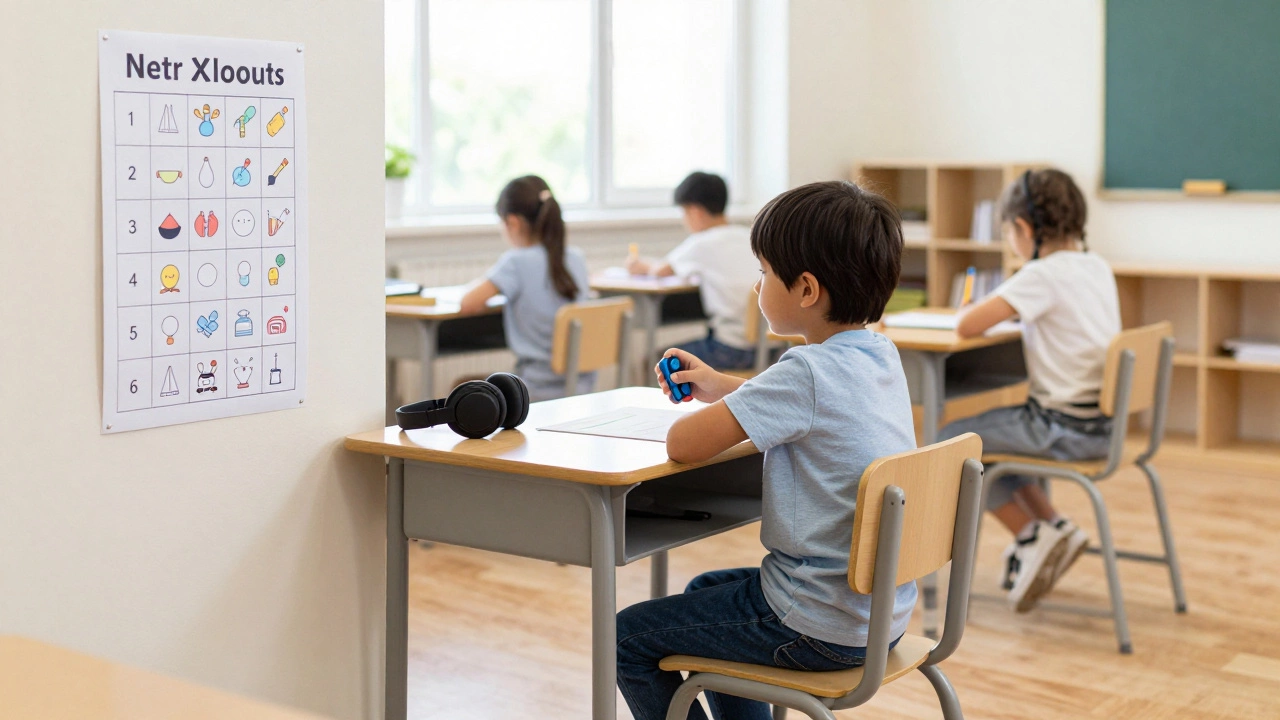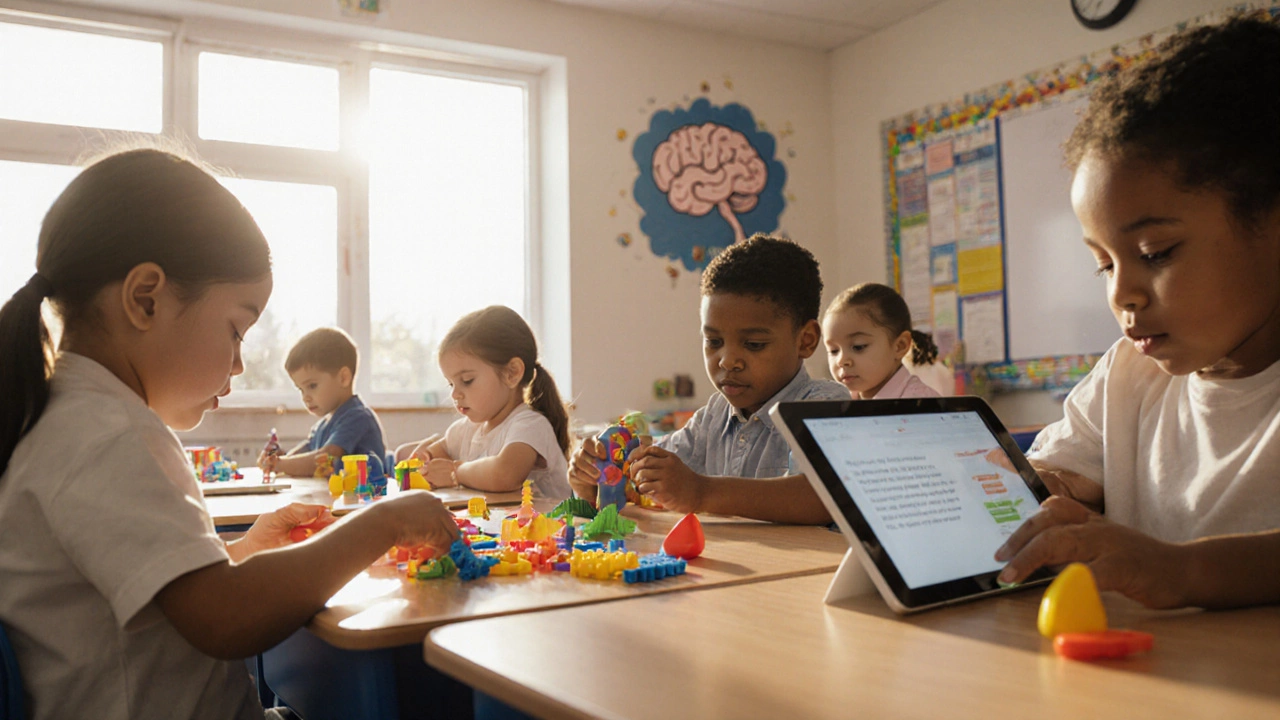Special Needs Education – Practical Guides and Support
If you’re a parent, teacher or caregiver, navigating special needs education can feel like a maze. You want clear answers, not jargon. Below you’ll find straight‑forward explanations of common challenges and easy‑to‑use tips that work in real classrooms and at home.
Understanding Common Challenges
Every child’s learning profile is different, but many families encounter a few recurring issues. Autism often brings unique communication styles, sensory sensitivities and a love for routines. ADHD can show up as restless energy, difficulty staying on task, or unexpected fatigue. Learning disabilities such as dyslexia or severe reading challenges affect how information is processed, not how smart a child is.
Recognising these patterns early makes a big difference. For example, if a student fidgets constantly, it might be a sign of attention needs rather than misbehaviour. Likewise, a child who repeats certain gestures may be using self‑stimming to manage sensory overload. Spotting the reason behind the behaviour helps you choose the right support.
Practical Tips for Parents & Teachers
Here are three simple strategies you can start using today:
1. Break tasks into bite‑size steps. Instead of saying, “Finish your worksheet,” try, “First, copy the instructions. Next, answer question one.” Small, clear steps keep the brain from feeling overwhelmed.
2. Use visual schedules. A picture board that shows the day’s activities reduces anxiety for autistic learners and helps kids with ADHD anticipate transitions. Update it daily so it stays relevant.
3. Provide movement breaks. A quick 5‑minute stretch or a walk around the room can reset attention for students with ADHD and boost mood for any learner. It’s a win‑win without losing instructional time.
Beyond these basics, consider technology tools that read text aloud, colour‑code assignments, or let students record their thoughts. These aids level the playing field and let each child show what they know.
Family dynamics also shift when a special needs child joins the household. Open communication among siblings, regular check‑ins with parents, and accessing community resources keep stress low. Remember, you’re not alone – schools often have support staff, counsellors and parent groups ready to help.
Transitioning to adulthood is another milestone. Start planning early by teaching life‑skills such as budgeting, job interview practice and public‑transport navigation. The goal isn’t to make the child independent overnight, but to build confidence step by step.
St. Andrews Educational Institution in Shifnal offers workshops, one‑to‑one coaching and a library of articles that cover everything from "How to discipline a special needs child" to "Understanding the impact of a special needs child on family dynamics". Our teachers use inclusive methods that respect each learner’s pace and strengths.
Ready to try something new? Pick one tip from above, apply it this week, and watch the change. Small adjustments add up, creating a supportive environment where every child can thrive.
Can special ed kids be successful? Yes - here’s how and why
Yes, kids in special education can be successful - not despite their differences, but because of the right support. Real stories, proven strategies, and what actually works in school and life.
MoreWhat Are the Four Major Types of Special Needs Children?
Learn about the four major types of special needs children-learning disabilities, autism spectrum disorder, developmental delays, and physical disabilities-and how each impacts learning and support in education systems.
MoreWhat Are the 5 Levels of ADHD? Understanding Severity and Support in Special Needs Education
There are no official five levels of ADHD, but understanding how symptoms impact learning helps teachers and parents provide better support. Learn what really matters for kids in special education.
MoreHow to Deal with a Defiant Special Needs Child: Practical Strategies That Work
Learn practical, real-world strategies to manage defiance in children with autism, ADHD, or other special needs. Understand triggers, build routines, use positive reinforcement, and create calm, consistent environments that reduce conflict.
MoreHow to Deal with a Stubborn Special Needs Child: Practical Strategies That Work
Learn practical, research-backed strategies to reduce resistance and build trust with a stubborn special needs child. Stop power struggles and start understanding the real reasons behind their behavior.
MoreAcorn Autism Explained: Definition, Signs & Support Strategies
Explore what Acorn autism is, its signs, how it differs from ASD, and practical support steps for schools and families in New Zealand.
MoreHow to Tell If Someone Has Special Educational Needs (SEN)
Learn how to spot signs of special educational needs, use practical checklists, understand assessments, and build effective support plans for learners of any age.
MoreUnderstanding Whether Special Needs Students Are Neurodivergent
Explore the difference between special needs and neurodivergent, discover overlaps, and get practical steps for supporting students in inclusive classrooms.
MoreWhen Do Learning Disabilities Typically Fade Away? Age Insights
Learn when learning disabilities typically improve, why ages vary, and how early support, interventions, and technology help learners of all ages manage their challenges.
MoreRecognizing and Understanding Mannerisms in Autism: A Practical Guide
Explore what mannerisms in autism look like, why they matter, and how to support autistic individuals through understanding unique gestures, routines, and behaviors.
MoreDoes ADHD Come from the Mother? Untangling the Genetic Puzzle
Wondering if ADHD is inherited mainly from mothers? This article explores the true genetics behind ADHD, separating myths from research. With clear explanations, you'll understand why it's not as simple as blaming one parent's DNA. Get practical tips on what families can do if there's a family history. Anyone curious about how ADHD runs in families will find straight answers here.
MoreSpecial Needs Syndrome: Understanding the Different Types and What They Mean
Special needs syndromes don’t all look the same. This article breaks down what 'special needs syndrome' actually means in education, showing how different syndromes can affect learning, behavior, and everyday life. You’ll pick up facts about the most common syndromes, spot signs early, and find tips for supporting kids and families along the way. The goal is to make these terms less confusing and more useful for parents, teachers, and anyone who cares. By the end, you’ll know what really matters—how to help children thrive.
More











